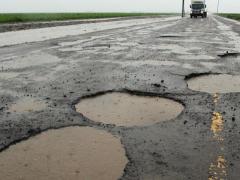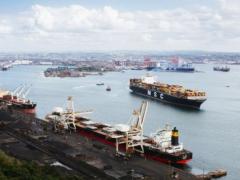Developed countries have been urged not to use carbon border taxes as non-tariff barriers by delegates attending Unctad 15 in Barbados.
The ministerial declaration by the Group of 77 and China at Unctad 15 states: “We are concerned that there may be adverse impacts on the economies of developing countries resulting from carbon border taxes and non-tariff trade barriers imposed by developed countries, on the pretext of addressing climate change.
“We stress that disinvestment from fossil fuels needs to take into account the national circumstances of developing countries, which have the right to development space, more time and international support to achieve the shared goal of an energy transition, in the context of international equity.
“One-size-fits-all approaches that disregard national circumstances are not just and will impose economic hardships and job losses on developing countries and leave them with stranded assets.”
The declaration also addresses the impact of smuggling on emerging countries.
“We reiterate that developing countries face important challenges in the measurement of illicit trade flows and the assessment of their impact on resource mobilisation, specifically for development and on national development strategies.
“Illicit trade creates a triple threat to the financing of development - crowding out legitimate economic activity, depriving governments of revenue for investment in vital public services, and increasing the costs of achieving the Sustainable Development Goals by eroding the progress already made.
“Therefore, there is a need to assist developing countries in addressing such challenges.”
There is also a call for helping countries to mitigate the impact of shipping accidents.
“We further reiterate the vulnerability of maritime transport, which channels most international trade, to accidents and related occurrences that may generate significant casualties and long-term environmental damage (eg, oil spills and release of dangerous chemical substances).
“Small island developing states and coastal developing countries are particularly exposed to such incidents, which may have prolonged, serious socioeconomic and environmental consequences.
“We call for support to these developing countries to build capacity and implement policies to effectively prevent and deal with the consequences of maritime accidents.”













